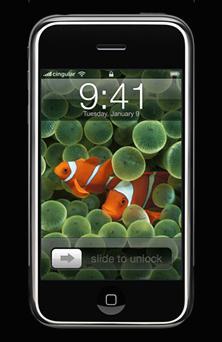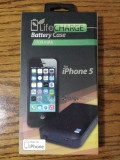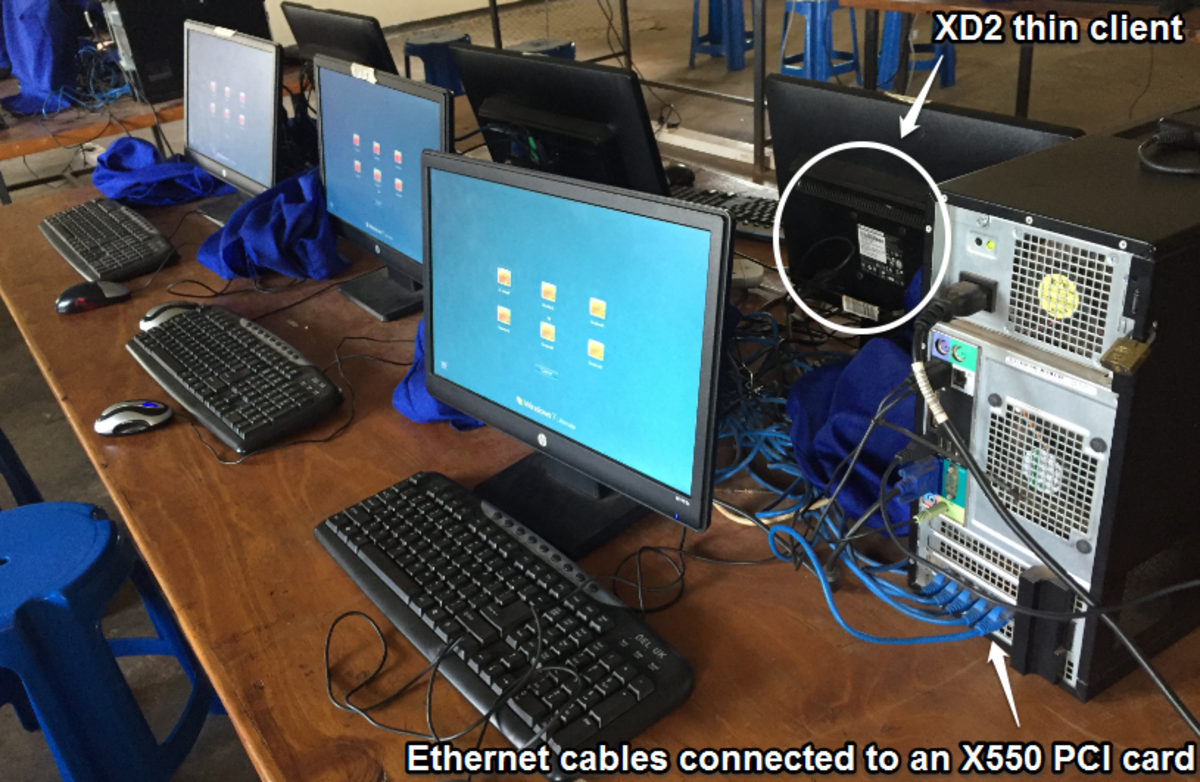Ten reasons not to buy an iPhone now
A few months after writing this page, I noticed that the iPhone is much better than when initial released. So, maybe you want to know a few reasons why you should buy an iPhone. Here is the original article:
After much waiting, the iPhone has been released in June 29. However, instead of rushing to the nearest Apple store, you should consider carefully if it is a smart move to buy the iPhone now. There are several issues that have appeared and that need to be addressed by Apple. This will take some time, and in the meantime you need to know what problems you can find while running the iPhone.
To help people still in doubt, I made a list of ten most important reasons not to buy an iPhone now.
1. Battery issues
A problem that usually occurs in a product in its first generation is that the battery time is too short. This is the case with the iPhone, which can only work for 8 hours when used as a normal phone. When other functions are being used, such as web browsing and video playback, it can last even less.
A good battery for the iPhone would enable continuous use for at least 12 hours, so that they don't have to connect it to the power source so frequently. Como cell phones can work for 20 hours or more without being recharged, and this is the standard that the iPhone should follow. Instead, this generation of the product is decidedly very energy-hungry.
2. The AT&T network is slow
Another weak spot of the iPhone is its cellular network. Apple has an exclusive contract with AT&T to provide cellular coverage. However, it is well know that AT&T is not using a 3G (third generation) network. This means that it was not designed to handle large amounts of data necessary to use certain features of the iPhone, such as Youtube access.
There is another annoyance that will be more important for travellers: since this is a GSM phone, nothing more natural that expecting to be able to switch GSM chips to make the cell phone work on another country. But, again, the iPhone is a sealed package; no one can open the box and change the chip without the support of an Apple specialist. This is really bad, and will certainly discourage people from using the iPhone when they need connectivity in more than one network.
3. Difficult to type
The iPhone has been advertised as a simple phone, which doesn't have buttons but allows natural data entry using only your fingers in the screen. However, it can suffer of a difficult to understand user interface for people that are used to normal cell phone keyboards.
The keyboard in the iPhone is part of the user interface, so there are no physical buttons to press. While this may be nice from the design point of view, it is hard for people that can count of the sensitive feedback of the keyboard.
Even according to Apple, it can take sometime until one gets used to the keyboard. It is easy to type the wrong keys when they are just drawn in a screen. Apple says that the system has an internal correction system, so it can correct mistakes. However, many people may find it too cumbersome to use this type of input mechanism.
4. No access to corporative email
The iPhone was created to solve the problems of processing capacity in the current models of cell phones. However, the iPhone has a big weakness in its support for corporative email, different from its competitors such as Blackberry and the Palm Treo.
With the Blackberry, for example, one can access corporate email even if it is behind firewalls. This is possible because RIM, the company that created the Blackberry, has dedicated servers that take care of the connectivity issue.
This doesn't happen with the iPhone, however. Right now, if you are a corporate user there is no easy way to access corporate email that is behind a firewall. This might change in the future, but it is a big problem for corporate users.
5. Non removable batteries
Another problem that has been raised in discussions about the iPhone is the fact that the batteries are not removable. This essentially means that you need always to walk with a recharger to make sure that it works.
Most cell phones have removable batteries, so users can just carry another battery and replace it when the unit is low in energy. Since this is not possible with the iPhone, it is a serious drawback for heavy users that need a cell phone for work related tasks. Thus, this is another reason why corporations will have little reason to the iPhone as it is right now.
6. High price
This is an important point for many people (at least if you are not rich): although the technology in the iPhone is very innovative, it is hard to spend $600 in a cell phone. Think about it: with this money you can buy a new desktop computer, even a notebook. You can use this money to pay for a trip, to buy many clothes, or to pay several months of your current cell bill.
If you really want to use the money to play, you can buy a PS3 or the highest price. You can also buy a Nintendo Wii with all games that you might want.
The point is that it is just too much money for a cell phone. And, different from other models, there are no rebates when you get a full plan from carriers, because AT&T doesn't have to compete with anyone else. If is a no-competition plan that is a lose-lose situation for customers.

7. Not many applications work with it
Since the iPhone is a new computing platform, one of the problems is that there are no many applications that are compatible with it. Some might say that this is not the case because the iPhone is based on the Mac OS X, which has thousands of applications.
The fact that the iPhone is based on the Mac OS X, however, doesn't mean that the applications can run directly -- far from it. The current mac applications are compiled to run on Power PC processors, and more recently on the Intel processors. Such applications could run in the iPhone only if they are recompiled, and Apple didn't release any set of tools to allow developers to do this.
Apple has also made clear that developers will be able only to create web-based applications, using the Safari web-kit. This means that no native applications will be available for the iPhone any time soon, although I am sure that some people will succeed in making hacks work. I think this is bad for users, which will have less options to choose from.
8. It has not been tested enough
The iPhone delivered on Jun 29 is only the first version of a very complex product. I would certainly expect a good number of minor glitches, such as security problems and small bugs. Although Apple has a good reputation for releasing well tested products, it is inevitable that a few things need to be ironed out before the iPhone is really ready.
9. The over reaction means that it will be hard to get one now
The iPhone is probably the most hyped product in recent history. This translates into hoards or people -- mainly Apple fans -- trying to get the cell phone first. People are selling these units for the triple of the price, and probably the price will be inflated for some time.
If you want to have an iPhone you either need a lot of time to go to stores, paying more on eBay, or waiting while you order is fulfilled on the Apple store. All these options can take some time.
10. You need to switch to AT&T
Probably the worst thing of the iPhone is that you cannot just buy it and use. You also need a special data plan from AT&T (ex-Cingular), which ranges from $60 to $100 per month. In other words, buying the iPhone also means paying at least $720 dollars per year, just to be able to make calls and use the web.
The total cost of ownership of an iPhone can therefore be close to two thousand dollars per year. This looks like an excessive cost for something that cannot even be used for business purposes, as discussed in the other points. Again, cost analysis shows that owning the iPhone can be a bad proposition if you look just at functionality.
Of course, Apple customers are looking more to the fun of owning a all-in-one device than to the costs involved... But at least now you have the facts, and can do an informed decision about switching to the iPhone or not.
Update: Reason 11 - international charges
According to recent news, the iPhone has a very annoying feature if you plan to take outside the U.S. The autoupdate feature, which reads email even if the phone is turned of, can result if a huge bill from AT&T.
According to some users, the bill get as high as $2000 if you bring the iPhone to a foreign country, such as Mexico.
So, if you plan to travel with an iPhone, be careful of the resulting bill. Or maybe is better to leave the iPhone at home.
If you enjoyed this article, visit my other Hubpages:
- Ten tips to find money for investment
- Ten tips for travelling this summer
- Ten tips to buy a good laptop computer
- Ten tips to buy a good laptop computer - Part 2
- Improving Your Credit Report
- Finding MP3 Files on the Internet for Your Music Player
- How to get TV content for the iPod Video
- Creating your own iPod screen design
- Microsoft Zune: the Good and Bad of the MP3 Player
- How to become a computer programmer
- GooglePack







